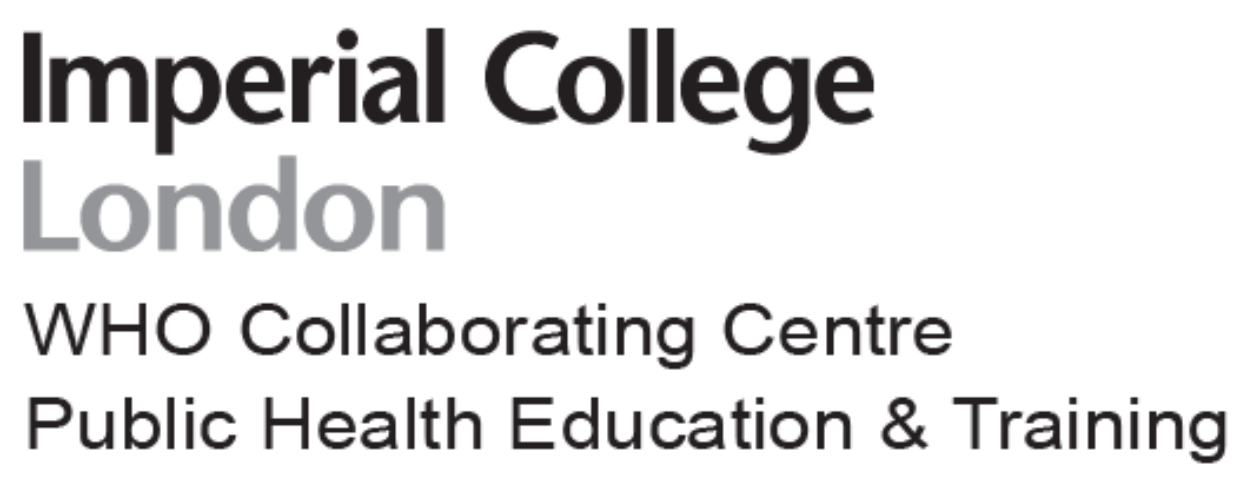1st International Conference of Primary Care and Public Health, 3rd International Congress of Person Centred Medicine
The 1st International Conference of Primary Care and Public Health, 3rd International Congress of Person Centred Medicine, was held at Imperial College London, United Kingdom, from the 29th to 31st of October 2015.
The conference covered five central themes: Primary Care in the 21st Century, Ageing and Ageism, Children and Adolescences, Integrated Care, and Public Health in Primary Care. The programme comprised of keynote lectures, brief oral presentations and posters, featuring prominent figures as well as members of local communities from numerous global settings, including the UK, US, Middle East and Mauritius. Over 250 individuals attended from countries all over the world.
The importance of this conference was laid out in the opening remarks from Imperial College President Alice Gast together with Dr Derek Bell of NIHR CLAHRC NWL and His excellency Professor Ala Alwan Eastern Mediterranean Regional office for the WHO. The trans-boundary issues which threaten health warrant an international response, and events such as this conference are crucial for knowledge exchange and the planning of action.
A summary of the calls to action from the conference below and more information from each speaker can be found on the conference website www.icpcmlondon2015.org
- Establish a shared goal of improvement in the health of the population through person and people centered care, taking into account biomedical, socio-cultural, psychological and spiritual elements that form part of the whole person and the demography of diverse populations.
- Primary care and Public health professionals should create and enhance local links and build relationships with each other and local stakeholders.
- Prevention programmes at all levels should be fully integrated within primary care.
- Create health care databases and identify new data sets, creating from these a consolidated information system a platform for sharing and displaying local population health data that could be used by communities.
- To create common research networks to foster and support the integration of primary care and public health to improve population health.
- To develop multidisciplinary educational programs developing the curriculum and clinical experience that ensures the integration of primary care and public health.
- That primary care should be delivered within the social networks of each person, alongside the provision Social Care and recognized as being part of a complex adaptive system with many components that reciprocally influence one another.
Primary Care in the 21st Century
This theme was explored throughout the conference both in addressing the complexity of a world in which displaced people’s health needs require action and in widening our understanding of what it means to be healthy. From Professor Ted Epperly’s insight to the American Health model and how our spending on medical services is not in line with what maintains health, through to Professor Marisa Papaluca’s clear explanation of how Regulators are driving innovation in providing personalised medicines.
Ageing and Ageism
The fact that the world’s population is ageing and the need to account for increasing longevity a known fact, exploring attitudes to ‘casual ageism’ both in the elderly and the often overlooked adolescent group was integral to Professor Jon Snaedal’s talk. Professor the Baroness Ilora Finlay brilliantly summarised the importance of palliative care and highlighted the lack of focus and expertise which health systems provide for end of life care. The one time all people will require healthcare is at the time of death so it is important to focus on the end as well as the beginning.
Childhood and Adolescence
Sir Al Aynsley Green delivered a powerful and important talk on the most important significant and influential period of an individual’s life: childhood. With changing population demographics it is more important than ever to invest in children and nurture them taking inspiration from the holistic methods of childcare in Finland. The importance of person centred medicine was emphasised by Professor John Cox with particular regards to perinatal depression. This is an issue which can have enduring effects on families involved and it must be addressed in order to ensure every child has a good childhood.
Professor Mitch Blair, in his inspirational talk, stressed the need for doctors to pay attention to the beginnings of life and the crucial first years and seeing the patient in the wider context of family, school, immediate community circumstances.
Integrated Care
Professor Azeem Majeed raised important points about the need for research and innovation in primary care, and explained the proposals for family practitioner led and hospital led integration. Professor the Baroness Sheila Hollins spoke compassionately about the need for person centred medicine and the imperative for care givers to work with the patient and their family and loved ones, to see the person behind the disability. Using integrated care for the treatment of atrial fibrillation was informatively described by Dr Abdul-Majeed Salmasi.
Public Health in Primary Care
Building health systems on a foundation of primary care and public health is vital for universal health coverage and improved population health. Professor Salman Rawaf spoke passionately about how crucial primary care is in order to tackle the growing prevalence of non-communicable disease and for ensuring healthcare is family and person orientated. The importance of primary care in public health was stressed in a video message from Professor Ala Alwan, director of EMRO, who highlighted that primary care is at the core of the region wide priorities for EMRO, including health system strengthening, addressing non-communicable disease, promoting health security and building capacity.
The conference was attended by over 200 attendees who benefited from the event and enthusiastically spoke about the experience.
“On the occasion of conclusion of the 1st International Conference of Primary Care and Public Health which was held at Imperial College, London (29-31 October, 2015), I would like to express the highest of my appreciation and gratitude to the marvelous efforts exerted on your part to have this extremely valuable conference in the best shape with this outstanding and remarkable success.
My very cordial congratulation for the success of the conference which is considered a turning point in primary care and public health march at the global level.
The success of the conference was evidenced by the broad participation from every corner on earth, it was a global demonstration about primary care and public health.
The themes and the scope of the conference encompassed a lot of interesting issues that were so vital to primary care and public health & the presence of such group of elite scientists and experts of the field crowned these efforts and was a real added value.”
Professor Tawfik Khoja
Director General Executive Board,
Health Ministers Council for Cooperation Council
---
“Although I could not participate fully from the beginning to the end; I am so pleased to have taken part of this rich intellectual and scientific activity. I would like to take this opportunity to congratulate you and your distinguished team on the quality of the technical as well as operational arrangements of the successful conference.”
Dr Atef El Maghraby
Technical Lead, Health Systems
World Health Organization


